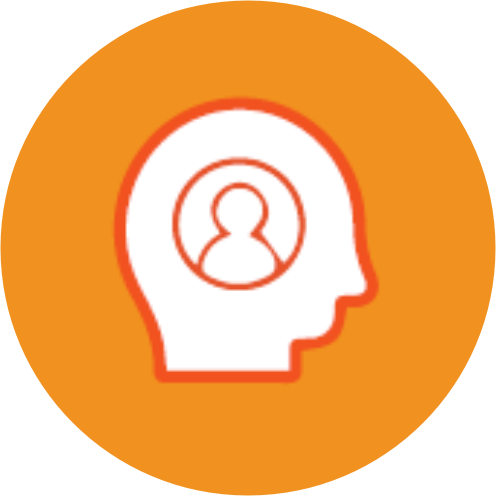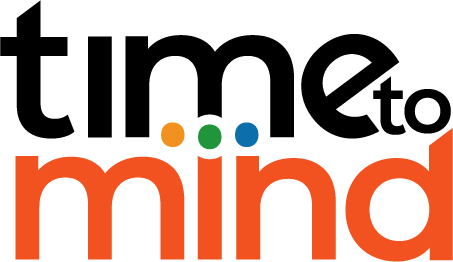Homepage / Time to Mind Adults
Assessment for gaining awareness, questioning or reorienting oneself
TIME TO MIND ADULTS
23 skills for professionalized, 4 skills per subject, 10 pathways for specific professions
The adult who has already entered the world of work may go through a period in which he needs to rethink the basis of his professional future. Consequently, there may emerge in him a desire to confront skills that are typical of his professionalism or that have perhaps remained latent or almost unused up to that point.
Time to Mind, through online Assessments dedicated to adults and through online re-orientation, is a concrete help in providing answers and bringing the participant to a high level of awareness with respect to one or more skills, as well as offering him or her a path to self-improvement.
ADULT ASSESSMENT
Time-to-Mind Assessments allow you to check the following individual skills that are the building blocks with which to construct any kind of profile that guarantees success for the profession and career. They are fundamental tools with respect to co-workers, themselves and those who carry out selection activities.
Time to Mind is the first-ever tool that, not only allows a concise diagnosis of capabilities, but automatically provides developmental support by combining two key moves that have hitherto been technically and temporally separate: DIAGNOSIS and INTERVENTION.
TO WHOM TIME TO MIND IS ADDRESSED ADULTS:
- Professionals who regardless of their levels, duties and responsibilities wish to assess key skills within their work.
- Professionals in specific fields who can take advantage of a matched pathway of skills designed to suit them.
- Curious adults who want to better understand their own capabilities.
- DEDICATED SOFT SKILLS:
The fundamental skills for adults are compiled in a pattern related to the functioning of the human mind according to the latest findings in neuroscience.
1 - Cognitive Skills Area.
Ability to break down complex phenomena and situations into essential elements by identifying connections, similarities, and differences useful for discovering and understanding their causes.
Orientation, both intuitive and sequential, to seek the most suitable and effective answers to difficult sitazioni and complex issues, trying different paths.
2 - Management and Innovative Capabilities Area
Ability to consistently direct one’s own and others’ activities toward the achievement of intended goals, providing a level of performance consistent with the nature and importance of those goals.
Ability to choose among different alternatives with thoughtfulness, lucidity, timeliness, under conditions of uncertainty, lack of information, complexity.
Orientation to formulate hypotheses and alternative scenarios with the aim of predicting the course of complex phenomena in which it is involved.
Ability to grasp the changing of others and situations, adapting one’s behavior for the purpose of seizing opportunities or achieving the set goal.
Orientation to seek or accept original and effective solutions in order to seize opportunities or achieve, individually and in groups, set goals.
Ability to actively influence events, rather than waiting for them to set in motion independently and being forced to follow them.
3 - Operational Processes Capability Area
Ability to predefine activities to be carried out in a given future through available resources, to achieve one or more goals as a function of the time variable.
Ability to effectively structure one’s own and others’ activities, resources possessed, and time available to achieve expected results.
Ability to identify the essential points of phenomena in order to verify the results to be achieved, the activities carried out, and the effectiveness of the relationships in order to ensure the correspondence between expectations and achievements.
Ability to devote oneself to a task without becoming discouraged and aiming for the expected conclusion.
Ability to understand the perceptions, needs, and attitudes of others and interject them constructively.
Ability to clearly state and make simple facts and concepts to any type of interlocutor.
Willingness to integrate one’s energies with those of others to achieve goals.
Ability to coordinate multiple people who must work together based on common, but not necessarily attuned, needs, focusing cross-communication and cross-relationship processes to direct them toward desired outcomes.
Orientation to seek and use negotiation margins in all situations where a result of any kind must be achieved in competition with other people or groups.
Ability to organize consensus, gain cooperation, and lead individuals or a group to achieve set goals.
Stability of performance under conditions of difficulty and conflict through lucid and balanced reactions.
Ability to deal with and keep under control situations that originate contrasts within groups and tensions in interpersonal relationships.
Attention to gathering and stimulating the needs of its customers, understanding their priorities and providing the most satisfactory answers with continuous follow-ups.
Ability to integrate one’s skills and energy within the organization with the goal of delivering results of appreciated professional value
Ability to direct, appreciate, grow and transfer activities, towards the people in one’s organization.
For each capacity, it is necessary to understand the specific moment on which improvement is needed.
- Soft skills matched by topic
Time to Mind, in its online Assessments, offers packages called “Composite Skills” or “Topic Skills.” These are skills that are considered indispensable in the world of work that are indirectly and necessarily inferred from the combined skills survey. Specifically, these are:

SUMMARY
ability (of cognitive area) to extract the essential elements of phenomena and problems and to develop logical consequences in order to identify the most appropriate alternative solutions.
SKILLS CONSIDERED: Analysis and Problem Solving.

AMBITION
the ability that is expressed by always moving forward determinedly toward goals that for many are too challenging or risky, fearlessly facing whatever difficulties arise.
SKILLS CONSIDERED: Determination, Conflict Management and Initiative.

CONVICTION
Ability to put together and present materials, suggestions, solutions in a way that captures the interest of stakeholders
SKILLS CONSIDERED: Determination Relationship Orientation – Verbal Communication – Negotiation

CREATIVE APPROACH TO INNOVATION
Aptitude for seeking original and effective solutions, not referring to traditional or already adopted patterns, while remaining in tune with the objectives to be pursued
SKILLS CONSIDERED: Determination Problem Solving, Working in a Team, Results Orientation, Prospective Vision, Flexibility, Willingness to Innovate and Initiative
10 Examples of Assessments for specific professions:
10 Online Assessment, as examples of job profiles that can be built from the purposes and responsibilities that characterize any complex activity to be performed by a person.
MANAGER:
Out of a range of 23 capabilities representing the fundamental organizational behaviors needed within any type of enterprise (private or public), 14 key capabilities underlying managerialism were identified. This Assessment makes it possible to highlight, in a profile, the level of effectiveness for each of the 14 capabilities, while also highlighting the level of expression of each of the three key moments that characterize each capability.
Skills considered: Analysis, Problem Solving, Planning, Organization, Control – Results Orientation, Decision Making, Perspective Vision, Relationship Orientation, Verbal Communication, Group Management, Negotiation, Leadership and Conflict Management.
PROFESSIONAL:
Out of a range of 23 capabilities, 10 key capabilities were identified that underlie the highly professional operational activities of technical, administrative and business sectors.
Skills Considered: Analysis, Problem Solving, Flexibility, Organization, Control, Determination, Relationship Orientation, Verbal Communication, Conflict Management, Working in a Team
SELLER:
Out of a range of 23 capabilities, 11 key capabilities underpinning the activity of the “Seller” were identified.
Skills considered:
Problem Solving, Controlling, Determination, Relationship Orientation-Verbal Communication, Working in a Team, Negotiation, Conflict Management, Customer Orientation, Results Orientation and Initiative.
KNOWLEDGE WORKER:
Out of a range of 23 skills, 9 key skills underlying the activities of the “Knowledge Worker” and supporting learning processes were identified.
Skills considered:
Problem Solving, Scheduling, Organization, Relationship Orientation, Verbal Communication, Group Management, Negotiation, Conflict Management and Results Orientation.
HOTEL MANAGER:
Out of a range of 23 capabilities, 15 key capabilities underlying managerial skills in the hotel industry were identified.
Skills considered:
Problem Solving, Scheduling, Organization, Control, Results Orientation, Decision Making, Perspective Vision, Relationship Orientation, Verbal Communication, Group Management, Negotiation, Leadership, Conflict Management and Customer Orientation.
PROFESSIONAL HOTELMANSHIP:
Out of a range of 23 capabilities, 10 key capabilities were identified that underlie the high professional content activities of the hotel industry.
Skills considered:
Problem Solving, Control, Determination, Relationship Orientation, Verbal Communication, Working in a Team, Conflict Management, Customer Orientation, Flexibility and Initiative.
HOTEL OPERATIVE:
Out of a range of 23 capabilities, 6 key capabilities have been identified that underlie the activities of the Hotel Operative.
Skills considered:
Problem Solving, Determination, Relationship Orientation, Verbal Communication, Working in a Team and Customer Orientation.
LAW FIRM:
Out of a range of 23 capabilities, 10 key capabilities underpinning the activity of the “Law Firm” were identified.
Skills Considered:
Analysis – Problem Solving, Organization, Control, Relationship Orientation, Verbal Communication, Working in a Team, Negotiation, Conflict Management, and Results Orientation.
VOLUNTEER:
Out of a range of 23 capacities, 10 key capacities were identified as the basis for the activity of the Third Sector “Professional.”
Skills considered:
Problem Solving, Planning, Organization, Determination, Relationship Orientation, Verbal Communication, Group Management, Conflict Management, Flexibility and Initiative.
VOLUNTEERING (OPERATOR):
Out of a range of 23 capabilities, 6 key capabilities were identified as the basis of an “operator’s” activity in the Third Sector.
Skills considered:
Determination, Relationship Orientation, Verbal Communication, Working in a Team, Flexibility and Initiative.
HOW TO CONDUCT SKILLS ASSESSMENTS FOR ADULTS
1.Sign up for the platform as a customer
2. Select “Assessment for workers.”
3. Choose one or more of the 23 desired skills or one of the 10 proposed Assessments that encapsulate the skills identified for specific professions.
4. Make the Assessment as a participant (logout from mode)
5. Look at the profile resulting from the responses
6. Choose one or at most two essential guides, from those proposed, on which it ispriority
, to improve your skills
7. Assessing a post-Assessment.

RE-ORIENTATION
To whom Time to Mind is addressed Adults/re-orientation
- Employed adults who wish to relocate in or out of the company
- Unemployed adults seeking new jobs.
- People who intend to deepen their self-knowledge
- People who intend to resume their studies
Based on the most recent achievements in neuroscience, it was possible to develop a questionnaire to highlight the personal profile of expression of 10 different mental faculties defined as multiple intelligences (which characterize the human mind, according to the studies of Howard Gardner) elaborated by Gian Carlo Cocco, correlated with the questionnaire on the learning style of each person (according to David Kolb’s model).


The two paired Questionnaires, which are easy and quick to fill out and self-explanatory, provide essential guidance support not only for those who are in the position of redesigning their professional future, but also for those who want to check in which areas of activity they are best suited.
THE 10 INTELLIGENCES ANALYZED:
- LINGUISTICS (1)
- MUSICAL (2)
- BODY-KINESTHETIC (3)
- VISUAL-SPATIAL (4)
- LOGICAL-RATIONAL (5)
- MATHEMATICS (6)
- SOCIAL (7)
- INTROSPECTIVE (8)
- VALORIZING (9)
- ETHICS (10)
THE 4 FUNDAMENTAL LEARNING STYLES:

DIVERGENT

SYSTEMATIZER

CONVERGENT

ADAPTER
Benefits of orientation

1. Increased awareness during orientation

2. Better understand one's inclinations

3. Devote more attention to oneself

4. Avoiding ineffective external influences in choices

HOW TO BECOME SELF-ASSESSMENT
on multiple intelligences and learning style
Corporate values and legal compliance
Understanding Time to Mind
Free trial
Enter the Time to Mind platform, choose your ability, try it out free of charge.
Time to Mind SA © 2022 – Site created by Clublab plus Sagl
